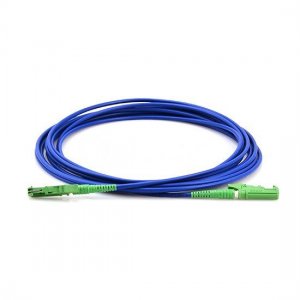
html
Armored Fiber Cable: A Robust Solution for High-Speed Data Transmission
In today’s fast-paced digital world, the demand for reliable and high-speed data transmission has never been greater. One of the key components enabling this seamless connectivity is the armored fiber cable. Designed to withstand harsh environments while maintaining optimal performance, armored fiber cables are becoming increasingly popular in various industries.
What is an Armored Fiber Cable?
An armored fiber cable is a specialized type of fiber optic cable that features an additional protective layer, typically made of steel or aluminum. This armor provides enhanced durability, protecting the delicate optical fibers inside from physical damage, moisture, and even rodent attacks. Unlike standard fiber cables, armored variants are built to endure extreme conditions without compromising signal integrity.
Key Advantages of Armored Fiber Cables
There are several compelling reasons why businesses and organizations opt for armored fiber cables:
- Superior Protection: The metal armor shields the fibers from crushing, bending, and other mechanical stresses.
- Longer Lifespan: With reduced risk of damage, these cables offer extended service life compared to regular fiber cables.
- Versatile Installation: Suitable for both indoor and outdoor use, including direct burial and aerial applications.
- Enhanced Security: The armored construction makes it harder to tap into the cable, providing better data security.
- Maintained Performance: Despite the added protection, these cables deliver the same high-speed data transmission as standard fiber optics.
Common Applications of Armored Fiber Cables
The robust nature of armored fiber cables makes them ideal for numerous challenging environments:
- Industrial settings with heavy machinery and potential cable hazards
- Military and defense communications systems
- Underground and outdoor network installations
- Data centers requiring extra protection for critical connections
- Harsh weather conditions where standard cables might fail
Choosing the Right Armored Fiber Cable
When selecting an armored fiber cable, consider these factors:
- Armor Type: Steel offers maximum protection but adds weight, while aluminum is lighter but slightly less durable.
- Fiber Count: Determine how many fibers you need based on current and future bandwidth requirements.
- Environmental Factors: Consider temperature extremes, moisture exposure, and potential chemical contact.
- Installation Method: Some armored cables are better suited for direct burial, while others work well in conduits.
Keyword: armored fiber cable
The Future of Armored Fiber Technology
As networks expand into more challenging environments and bandwidth demands continue to grow, armored fiber cables will play an increasingly vital role. Manufacturers are developing lighter yet stronger armor materials and improving cable designs to make installation easier while maintaining high levels of protection. With the rise of 5G networks, smart cities, and industrial IoT, the demand for these rugged communication solutions is expected to surge in coming years.
For any application where reliability and durability are paramount, armored fiber cables provide an excellent solution that combines the speed of fiber optics with the toughness needed for demanding installations.